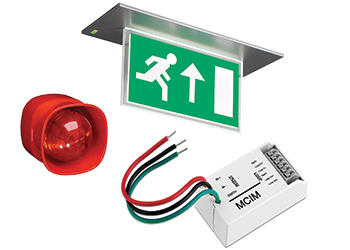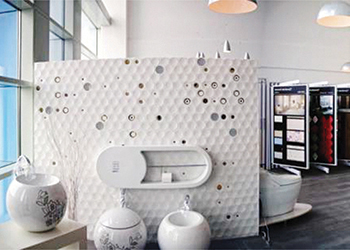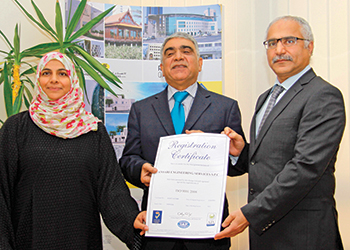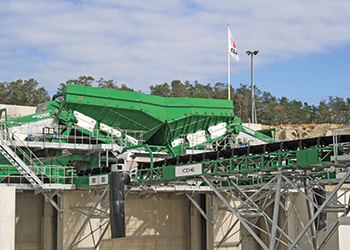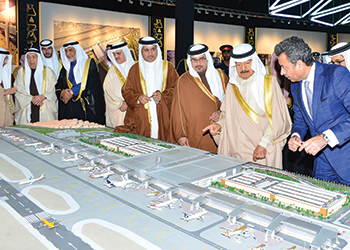
 The Premier looks at a model of the airport project.
The Premier looks at a model of the airport project.
Bahrain has launched a $1.1-billion project to expand its international airport and increase its capacity to accommodate 14 million passengers a year.
HRH Prime Minister Prince Khalifa bin Salman Al Khalifa last month laid the foundation stone for the new state-of-the-art building, in the presence of HRH Prince Salman bin Hamad Al Khalifa, the Crown Prince, Deputy Supreme Commander and First Deputy Prime Minister.
The expansion project, which is the largest in the history of civil aviation in Bahrain, is among the mega development projects, worth more than $32 billion, to be implemented in the kingdom in the coming years to boost the economic development efforts, HRH the Premier was quoted as saying by the Bahrain News Agency (BNA).
It includes a new passenger terminal covering an area of 201,467 sq m, making it four times the size of the existing terminal.
It also features 24 air bridges, airport aprons, departure halls, check-in counters, passport control booths, security lanes, a duty-free area, jetty-served departure gates, passport control booths, e-Gates, baggage reclaim belts and car parks.
The Abu Dhabi Fund for Development (ADFD) has contributed $918 million towards the Bahrain International Airport expansion project, according to the BNA.
The contribution comes as part of the GCC development programme agreed upon in 2013.
Five agreements were signed as part of the airport modernisation programme (AMP) in January on the sidelines of Bahrain International Air Show (BIAS) 2016. Announcing the deals, Kamal bin Ahmed Mohammed, the Minister of Transportation and Telecommunications (MTT), said the project for the construction of the new passenger terminal building, the main services building and aircraft bay has been awarded to a joint venture between UAE builder Arabtec and TAV Construction from Turkey.
The contract for the passenger airbridges was awarded to Chinese group CIMC, while the deal for the baggage handling system was clinched by Dutch specialist Vanderlande.
The other key awards include the contracts with US-based L3 Communications for supply of security screening equipment, and Finnish group Kone for its horizontal and vertical transfer systems.
Besides this, the government also signed a contract with Setec from France for the design of an MRO (maintenance, repair and overhaul) facility.





















_0001.jpg)


.jpg)
















.jpg)








.jpg)




